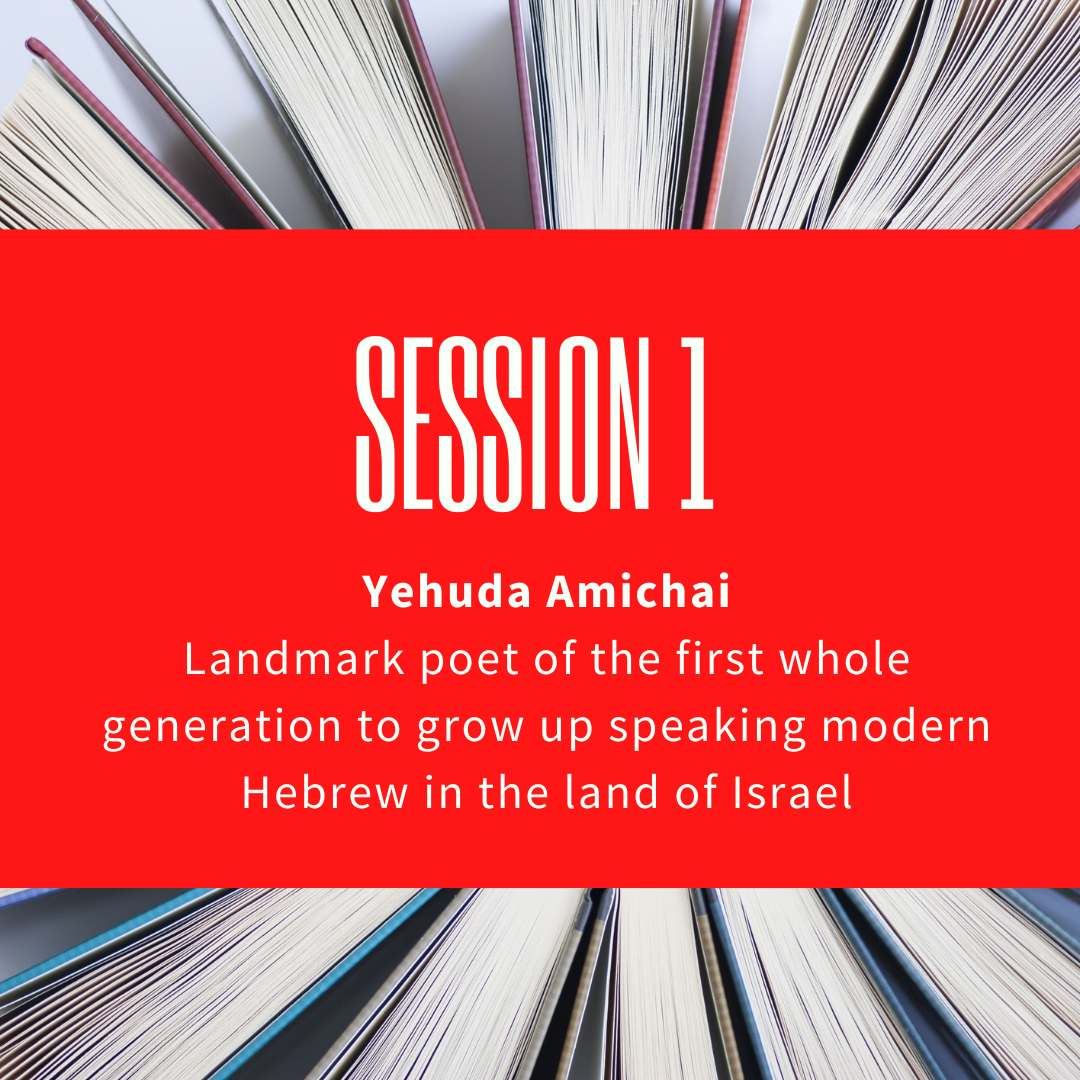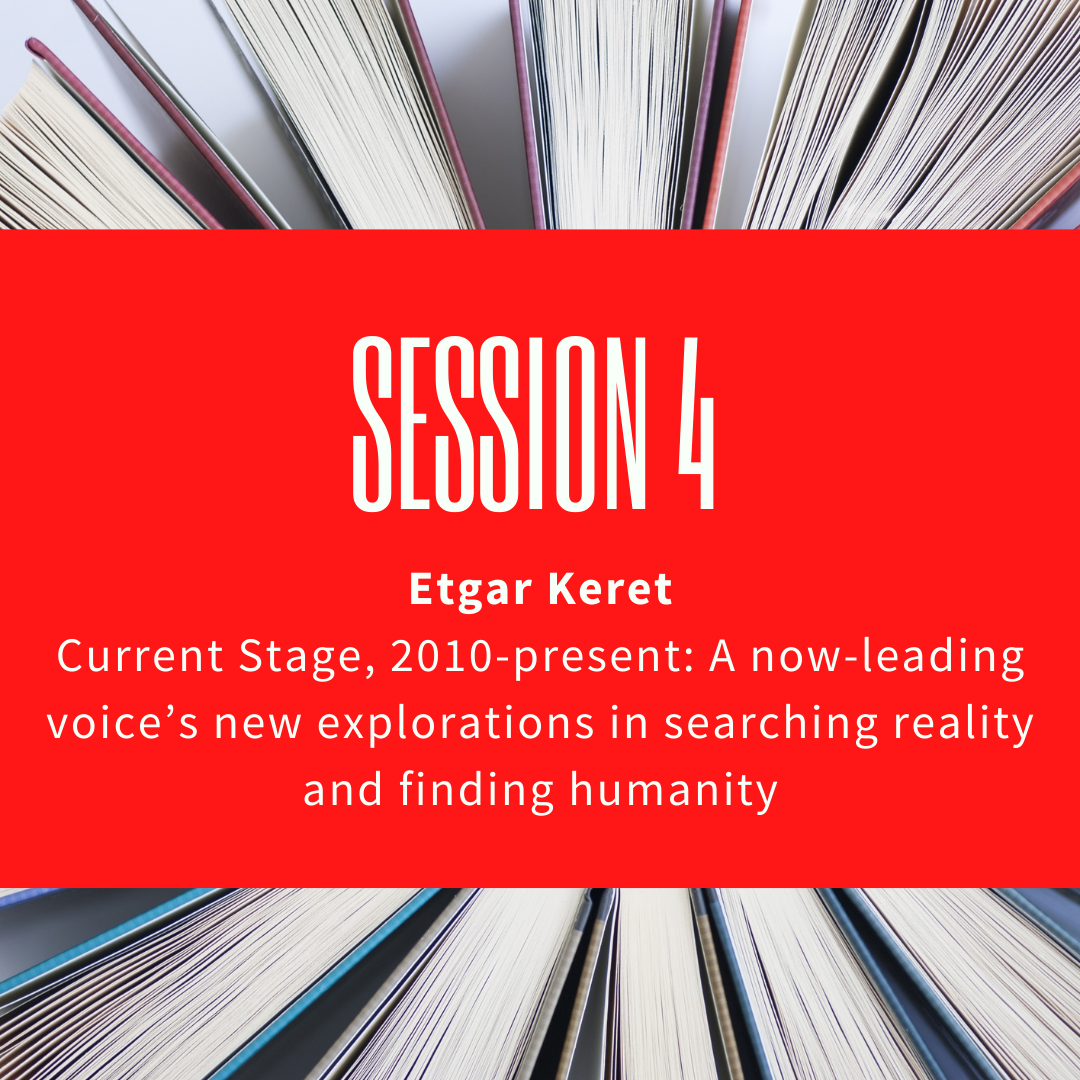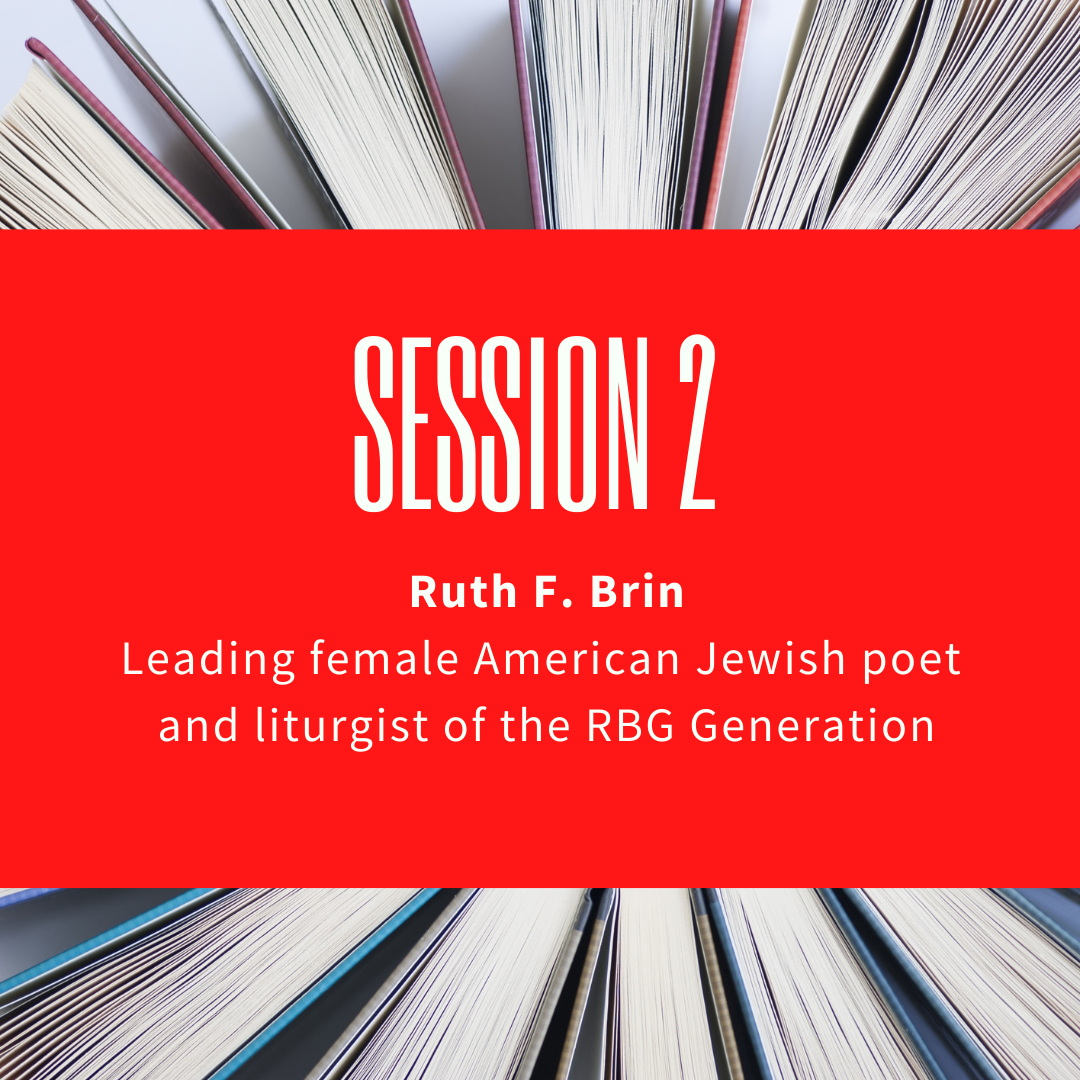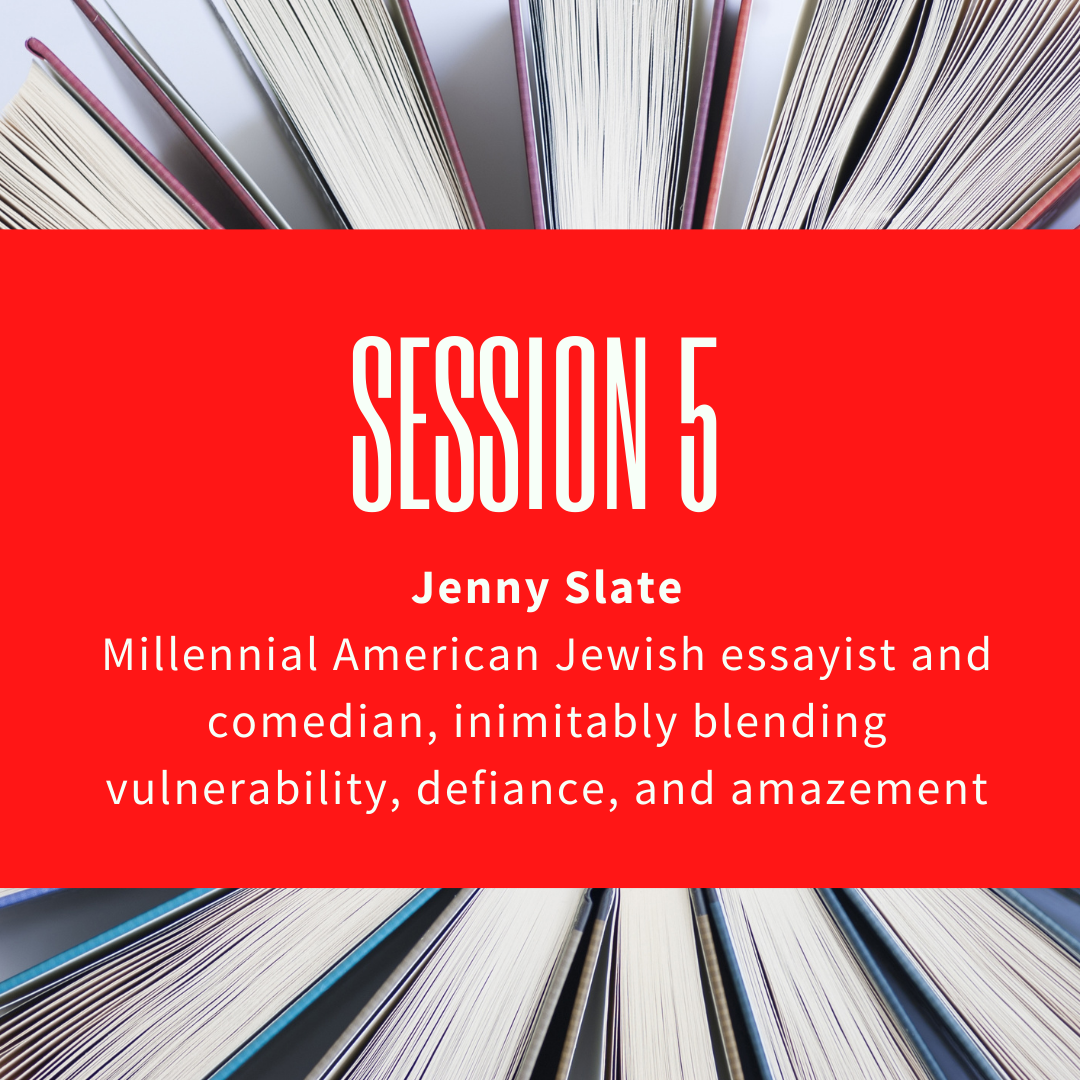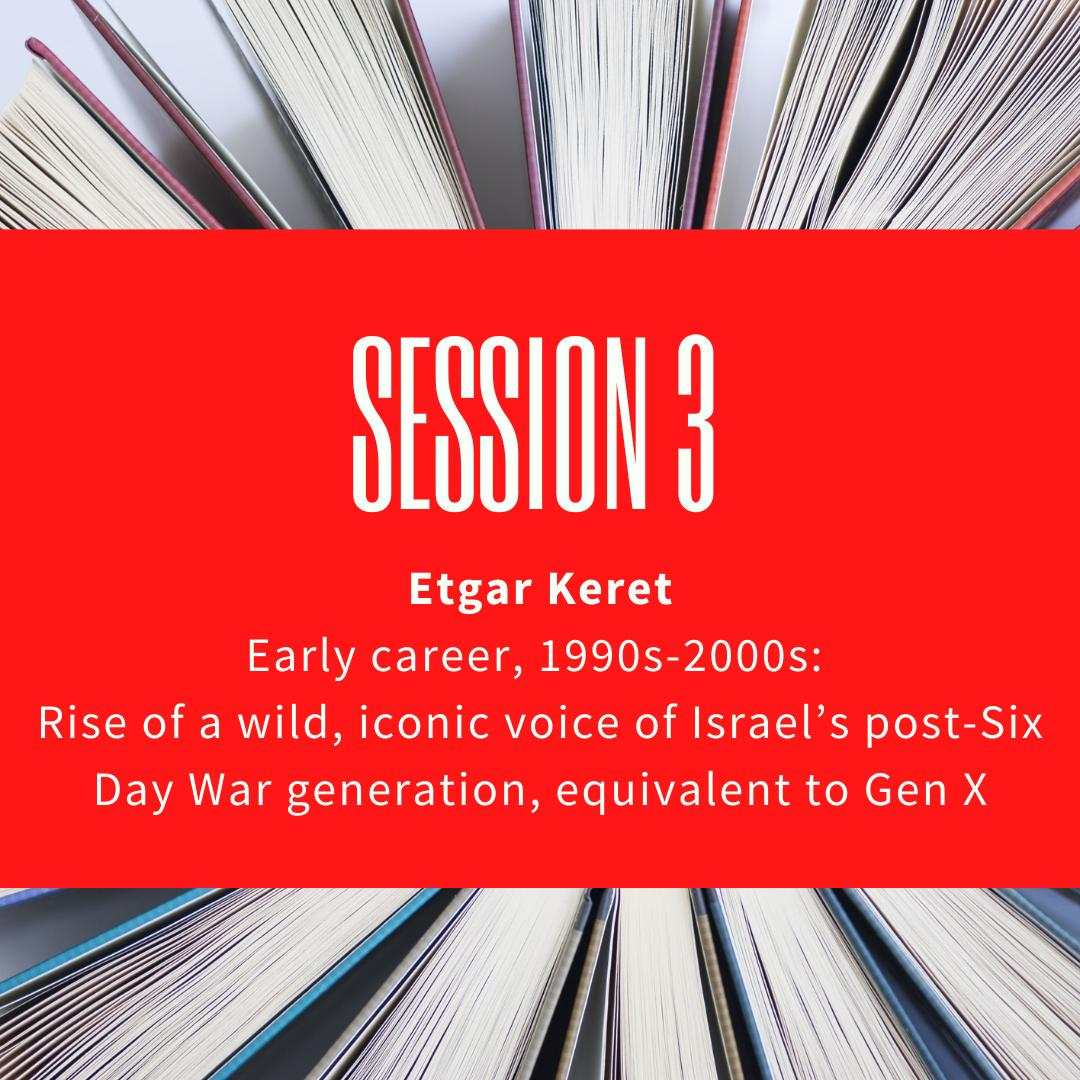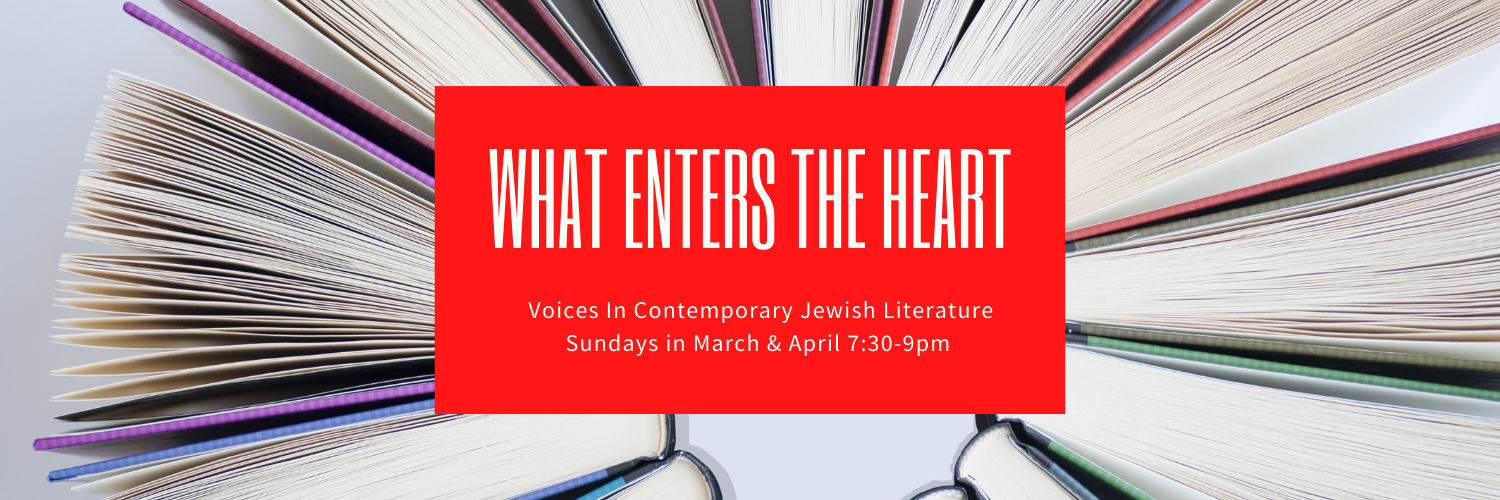
What Enters the Heart
Voices in Contemporary Jewish LiteratureВ
with Rabbinic Intern Noah Lawrence
Spring 2021
Join us as we explore how contemporary Jewish literature contributes to modern art and culture a distinctively candid, heartfelt voice, with a real experience of “you laugh, you cry” — in the spirit of the Jewish saying, “Words that come from the heart enter the heart.” We’ll explore how contemporary Jewish poets, fiction writers and essayists reckon with what is hard in our world and, precisely amid it, find a life-affirming spirit and cause for celebration.В
В
No Preparation Required: We’ll read out loud together rotating around the Zoom room (think of it as a Seder of modern literature). Come discuss together and share together as these spirited voices lift up our lives.
Watch Sessions
Choices For Further Reading
The five books from which we read pieces together in our sessions:
Yehuda Amichai,В The Poetry of Yehuda Amichai, edited by Robert Alter, 2015
В
Ruth F. Brin, Harvest: Collected Poems and Prayers, 1986, 2nd edition 1999В
В
Etgar Keret, The Bus Driver Who Wanted to Be God & Other Stories, 2004, 2nd edition 2015
В
Etgar Keret, A Glitch at the Edge of the Galaxy • Takalah bi-K’tzeh ha-Galaksyah, 2018, published in English as Fly Already, 2019
В
Jenny Slate, Little Weirds, 2019В
В
Ilana M. Blumberg, Open Your Hand: Teaching as a Jew, Teaching as an American, 2018.
 “[P]art memoir, part discussion of the ethics and praxis of education, and part detailed accounts of Blumberg’s teaching experiences – poignant, dramatic, profound in their implications … Blumberg herself thinks and writes her way through crises that interrogate her own assumptions … A large-hearted and clear-minded document” (Bible scholar Avivah Gottlieb Zornberg).
Raised in Ann Arbor, MI and Chicago and a professor at Michigan State University before aliyah, Blumberg is now Director of the Shaindy Rudoff Graduate Program in Creative Writing at Bar-Ilan University.
В
Shani Boianjiu, The People of Forever are Not Afraid • Am Ha-Netzach Lo Mefached, 2012 (English), 2014 (Hebrew).
Including “Means of Suppressing Demonstrations,” a chapter published separately as a short story, The New Yorker, June 25, 2012 issue, https://www.newyorker.com/magazine/2012/06/25/means-of-suppressing-demonstrationsВ
Boianjiu is an Israeli millennial woman who grew up in the Galilee, served in the IDF, and attended Harvard; her debut novel chronicles the stories of three female friends making their way through their time in the IDF and coming of age.
В
Shulem Deen, All Who Go Do Not Return: A Memoir, 2015
“The most lyrical [and] also the most searchingly spiritual of the вЂex-frum’ memoirs” (The New Yorker); “This is a heartbreaking book, and an important one, about the consequences of being true to yourself, and about a world and a community few of us know” (writer Joshua Henkin).
В
Jeffrey Goldberg, Prisoners: A Story of Friendship and Terror, 2006
A “personal history” by genre, this book recounts Goldberg’s journey as an American Jew moving to Israel, serving as a prison guard during the First Intifada, and forging a dialogue and even friendship with a PLO leader. Goldberg is now Editor-in-Chief of The Atlantic.
“[C]lear-eyed, deeply emotional and often humorous … Prisoners offers no easy answers but manages to inspire the rarest of commodities in the Middle East: hope” (Los Angeles Times).
В
David Grossman, A Woman Fleeing the Tidings • Ishah Borachat mi-Besorah, 2008, published in English as To the End of the Land, 2010.В
“[W]hen I heard someone comparing Grossman with Tolstoy, and his novel withВ War and Peace, I did not scoff” (Rachel Cooke, The Guardian);В
One of the “three major Hebrew novels that record the anguished way-stations of the Zionist experience … engag[ing] the condition of living in Israel in the era of terrorism and the occupation … Grossman’s most powerful novel—often emotionally painful in its power yet rich in a complex sense of life that goes beyond the terrible pain that it represents” (Robert Alter, The New Republic).
В
Ron Leshem, If There’s a Garden of Eden • Im Yesh Gan Eden, 2005, published in English as Beaufort, 2007.
В A wild, heartfelt, “you laugh, you cry” slice of life among young Israeli men in the IDF, with an emphasis on the Mizrahi/Sephardi experience, in the lead-up to and during Israel’s withdrawal from South Lebanon in 2000.В
Winner of the Sapir Prize for Literature (Israel’s equivalent of the Pulitzer), and made into the Academy Award-nominated film Beaufort, 2007.
В
Yehoshua November, God’s Optimism, 2010 (finalist for theВ L.A. TimesВ Book Prize); Two Worlds Exist, 2016 (finalist for National Jewish Book Award).В
These poetry collections by this Hasidic poet and creative writing professor at Rutgers blend welcoming, plainspoken English and everyday settings with startling encounters with sublime spirituality.
В
Amos Oz, A Tale of Love and Darkness • Sipur al Ahavah ve-Choshech, 2002, published in English in 2004.В
Arguably his magnum opus, Oz’s memoir traces parallel journeys: the journey of modern Israel to independence; the journey of his family, from Europe to the Land of Israel, yet tragically including his mother’s suicide; and Oz’s own journey coming of age and developing his personal identity and expression within the collective experiences of Zionism, modern Hebrew and modern Israel.В
Made by Natalie Portman into a film of the same name, premiering at Cannes in 2015, with Portman directing and starring as Oz’s mother.
В
Grace Paley, Enormous Changes at the Last Minute (short story collection), 1974; A Grace Paley Reader: Stories, Essays, and Poetry, 2017.
Revered female writer, particularly of short stories, and activist, born in 1922 to Russian Jewish immigrant parents and raised in the prewar Bronx.В
“When I think of the work of Grace Paley … the phrase that enters my mind isn’t a particularly literary one: generosity of spirit … She packs more humanity, longing, regret, humor and pathos into the three pages that make up “Wants” [this collection’s first story] than many doorstop novels … [P]erhaps generosity of spirit should be a literary term. If Grace Paley is still read two hundred years from now, as I believe she will be, it is that very spirit that will contribute to the timelessness of her work” (writer Dani Shapiro).
В
Haim Sabato, Adjusting Sights • Te’um Kavanot, 2000, published in English in 2003.
 Born in Cairo in 1952, and from a long line of rabbis in Aleppo, Sabato is both a rabbi and a fiction writer, and he draws on traditional religious phrases to describe modern life, earning comparisons to the lion of early modern Hebrew fiction S. Y. Agnon. This autobiographical novel, about childhood friends who are called up to serve in the Yom Kippur War and what happens after the war ends, won Israel’s inaugural Sapir Prize for Literature.
В
Ruth Whitman, editor, An Anthology of Modern Yiddish Poetry, 1995 (3rd edition).
Of the writers in this anthology, I especially recommend the evocative, warm yet surprising, vivid voice of Yankev Glatshteyn (Jacob Glatstein), born 1896, Lublin, Poland, immigrated to America at 18, died 1971, New York City; for English collections see:
The Selected Poems of Jacob Glatstein, translated by Ruth Whitman, 1972.
I Keep Recalling: The Holocaust Poems of Jacob Glatstein, translated by Barnett Zumoff, 1993.

